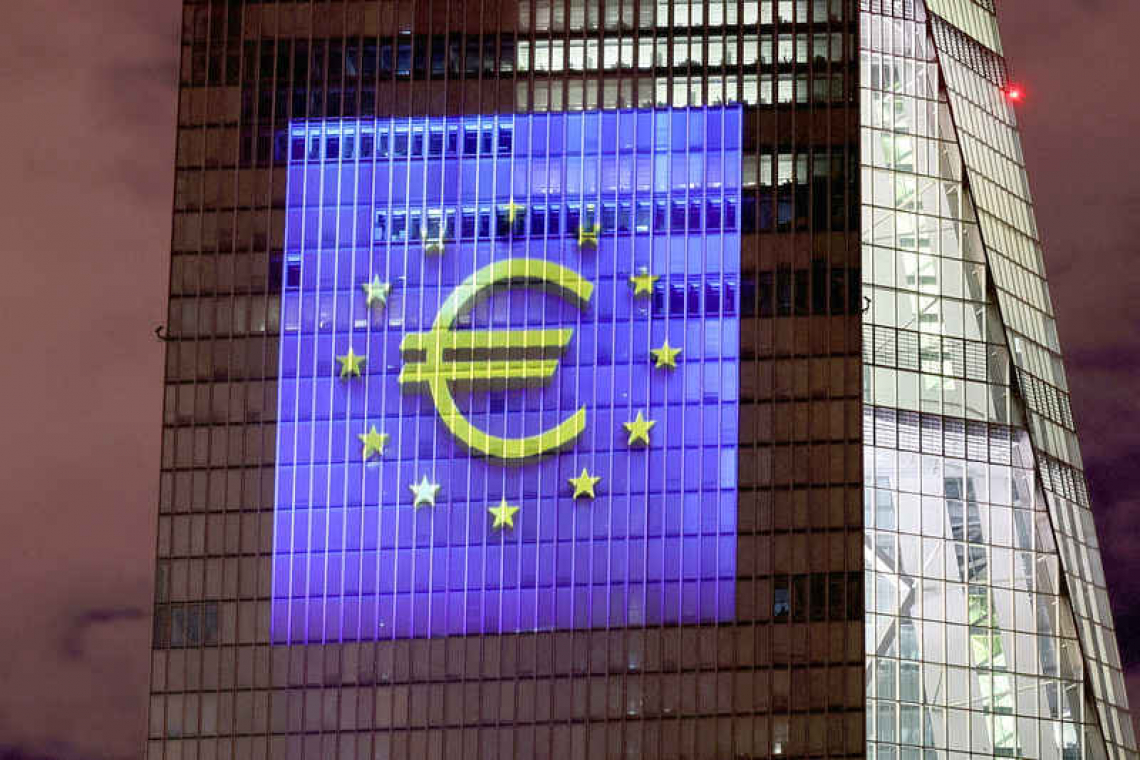FRANKFURT/AMSTERDAM--The European Central Bank ended a long-running stimulus scheme on Thursday and said it would deliver next month its first interest rate hike since 2011, followed by a potentially larger move in September.
With inflation at a record-high 8.1% and still rising, the ECB now fears that price growth is broadening out and could morph into a hard-to-break wage-price spiral, heralding a new era of stubbornly higher prices.
The central bank for the 19 countries that use the euro said it would end quantitative easing on July 1, then raise interest rates by 25 basis points on July 21. It will then hike again on Sept. 8 and go for a bigger move, unless the inflation outlook improves in the meantime.
"We will make sure that inflation returns to our 2% target over the medium term," ECB President Christine Lagarde told a news conference. "It is not just a step, it is a journey," she said of the moves signalled on Thursday.
Some policymakers had advocated a bigger move in July but eventually gave in and the final policy decision was approved unanimously, sources told Reuters.
The rapid rise in inflation was driven initially by energy and food prices as economies emerged from COVID-19 lockdowns but Russia's invasion of Ukraine has accelerated those trends and even underlying inflation is now at twice the ECB's target. The size of rate hikes has been intensely debated by ECB policymakers, with Chief Economist Philip Lane preferring 25 bp moves in July and September but others arguing for 50 bps to be considered.
Supporting their case, the ECB raised its inflation projections once again, to 6.8% for this year versus a previous forecast of 5.1%. It sees inflation at 3.5% in 2023 and 2.1% in 2024, which would be a fourth straight year of overshooting.
Lagarde said that was too high and that similar projections three months from now would require quicker rate hikes. "If you are at 2.1% in 2024 or beyond, then the increment of the adjustment will be higher? The answer is yes," Lagarde said.
A 50 basis point hike, the logical next increment, would be the ECB's largest one-off rate increase since June 2000. At minus 0.5%, the ECB's deposit rate has been in negative territory since 2014.
"Given that our forecasts are pointing to a further increase in euro area core inflation in the next few months, we now expect the ECB to hike rates by 25bp in July, and by 50bp in September," Pictet strategist Frederik Ducrozet said. "We expect the ECB to revert back to the 'benchmark pace' of 25bp hikes, but they are likely to hike in October and in December, and the 50bp option will likely remain on the table until core inflation eases significantly."
By late Thursday, markets were pricing in 144 basis points of rate hikes this year, implying an increase at every meeting from July, with several moves in excess of 25 basis points. They were anticipating a combined 240 basis points of moves in the deposit rate by the end of 2023, putting the interest rate peak close to 2%.
"I think in times of great uncertainty, gradualism is probably appropriate, more so than if the path is clear, well-identified and we all understand where we are heading," said Lagarde, who said early this year that a 2022 rate hike was highly unlikely.
Some economists argued that the ECB was already too late in tacking inflation so raising rates to the neutral level, where it is neither stimulating nor holding back the economy, will not be enough.







